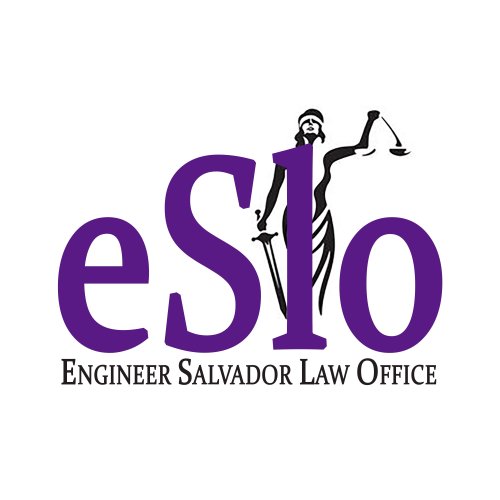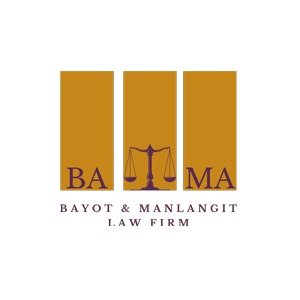Best Business Lawyers in Cavite City
Share your needs with us, get contacted by law firms.
Free. Takes 2 min.
List of the best lawyers in Cavite City, Philippines
Philippines Business Legal Questions answered by Lawyers
Browse our 4 legal questions about Business in Philippines and read the lawyer answers, or ask your own questions for free.
- Where can we have papers notarized?
- Affidavit of auto deduct from our company. We will just need to have 2papers be notarized.
-
- Transfer little business to Philippines
- Hello, I am in Germany and would like to move to the Philippines in a few years. I have an apartment there as an investment and am currently running a part-time T-shirt print-on-demand business, which earns me around €500 per month. Unfortunately, there is not much left over due to... Read more →
-
Lawyer answer by Law Office Attorney SVETISLAV STOJANOSKI, LL.M.
You can do the same in Macedonia even the taxes are the lowest in Europe (and in EU), you can also be the owner and manager of your company registered in Macedonia without living in Macedonia. If you want me...
Read full answer - USA Owned Corporation call center
- I need to get a Corporation set up in the Philippines. Myself and my lawyer here in the USA want to start a call center for passing information between Lawyers and Doctors in The USA. We will only employ Filipino Employees. I will be be CEO and President of the... Read more →
-
Lawyer answer by Atty. Rainier Mamangun
Our Law Firm, established in 2004, has been providing services to a multitude of clients in the areas of Company Formation, Corporate Services, Mergers & Acquisitions, Corporate Finance & Securities, Information Technology, Labor Relations & Employment, Litigation & Dispute Resolution,...
Read full answer
Philippines Business Legal Articles
Browse our 1 legal article about Business in Philippines written by expert lawyers.
- Managing Labor Inspections for BPOs in the Philippines
- Managing Labor Inspections for BPO Companies in the Philippines The Department of Labor and Employment (DOLE) conducts unannounced inspections to verify compliance with General Labor Standards and Occupational Safety and Health standards. BPO companies must maintain meticulous payroll records covering the past three years to prove payment of night shift... Read more →
About Business Law in Cavite City, Philippines
Cavite City, located in the Philippines, offers a thriving business environment with various opportunities for entrepreneurs and investors. Understanding the legal aspects of conducting business in Cavite City is essential to ensure compliance with local regulations and protect your interests. Business law encompasses a wide range of legal practices related to the establishment, operation, and dissolution of businesses.
Why You May Need a Lawyer
While starting or running a business, there are numerous situations where seeking legal advice becomes crucial. Some common scenarios where you may require a lawyer include:
- Forming a business entity
- Drafting and reviewing contracts and agreements
- Negotiating business transactions
- Resolving disputes, such as contract breaches or partnership disagreements
- Understanding tax obligations and ensuring compliance
- Protecting intellectual property rights
- Employment-related matters, like drafting employment contracts or resolving disputes with employees
Local Laws Overview
When conducting business in Cavite City, it is essential to have a basic understanding of the following key aspects of local laws:
- Business Registration: To establish a business legally, you will need to register with the appropriate government agency, such as the Department of Trade and Industry (DTI) or the Securities and Exchange Commission (SEC).
- Business Permits and Licenses: Acquiring the necessary permits and licenses from the local government unit (LGU) is mandatory for businesses to operate lawfully.
- Labor Laws: Cavite City follows national labor laws that govern aspects such as hiring practices, working conditions, minimum wage requirements, and termination procedures.
- Taxation: Businesses must understand and fulfill tax obligations imposed by the Bureau of Internal Revenue (BIR) to avoid legal issues.
- Intellectual Property Rights: Protecting patents, trademarks, and copyrights is crucial for businesses to safeguard their innovations, brands, and creative works.
- Contract Law: Understanding contract law is essential for drafting, reviewing, and enforcing legally binding agreements.
Frequently Asked Questions
1. Can foreigners own businesses in Cavite City?
Yes, foreigners can own businesses in Cavite City. However, certain legal requirements and restrictions may apply depending on the type of business entity and industry. Seeking legal advice is advisable to ensure compliance.
2. What are the steps to register a business in Cavite City?
The specific steps may vary based on the business structure, but generally, it involves registration with the DTI or SEC, obtaining necessary LGU permits and licenses, and complying with tax obligations. It is recommended to consult a lawyer or visit the DTI/SEC offices for a detailed guide.
3. How can I protect my business's intellectual property rights?
To protect intellectual property rights, you can register trademarks, patents, and copyrights with the Intellectual Property Office of the Philippines (IPOPHL). Consulting an intellectual property lawyer is advisable to navigate the registration process and enforce your rights effectively.
4. What are the labor laws regarding employee benefits?
Labor laws in Cavite City stipulate certain benefits for employees, including minimum wage requirements, social security contributions, health insurance, and annual leave. Familiarize yourself with the Labor Code of the Philippines or consult a lawyer to ensure compliance.
5. How can I resolve a business dispute without going to court?
Alternative dispute resolution methods, such as negotiation, mediation, or arbitration, can be employed to resolve business disputes without going to court. Mediation centers or private law firms offering dispute resolution services can assist you in this process.
Additional Resources
For further assistance and information regarding business matters in Cavite City, Philippines, consider referring to these resources:
- Department of Trade and Industry (DTI) - Cavite Office
- Securities and Exchange Commission (SEC) - Cavite Extension Office
- Bureau of Internal Revenue (BIR) - Cavite Revenue District Office
- Intellectual Property Office of the Philippines (IPOPHL)
- Local law firms specializing in business and commerce
Next Steps
Should you require legal assistance in business matters in Cavite City, Philippines, follow these steps:
- Identify your specific legal concern or requirement.
- Research and find reputable law firms or lawyers specializing in business law.
- Schedule consultations with potential lawyers to discuss your situation and evaluate their expertise.
- Select a lawyer who understands your needs and has experience in dealing with similar cases.
- Work closely with your chosen lawyer to address your legal concerns and ensure compliance with local laws.
Lawzana helps you find the best lawyers and law firms in Cavite City through a curated and pre-screened list of qualified legal professionals. Our platform offers rankings and detailed profiles of attorneys and law firms, allowing you to compare based on practice areas, including Business, experience, and client feedback.
Each profile includes a description of the firm's areas of practice, client reviews, team members and partners, year of establishment, spoken languages, office locations, contact information, social media presence, and any published articles or resources. Most firms on our platform speak English and are experienced in both local and international legal matters.
Get a quote from top-rated law firms in Cavite City, Philippines — quickly, securely, and without unnecessary hassle.
Disclaimer:
The information provided on this page is for general informational purposes only and does not constitute legal advice. While we strive to ensure the accuracy and relevance of the content, legal information may change over time, and interpretations of the law can vary. You should always consult with a qualified legal professional for advice specific to your situation.
We disclaim all liability for actions taken or not taken based on the content of this page. If you believe any information is incorrect or outdated, please contact us, and we will review and update it where appropriate.
Browse business law firms by service in Cavite City, Philippines
Cavite City, Philippines Attorneys in related practice areas.











